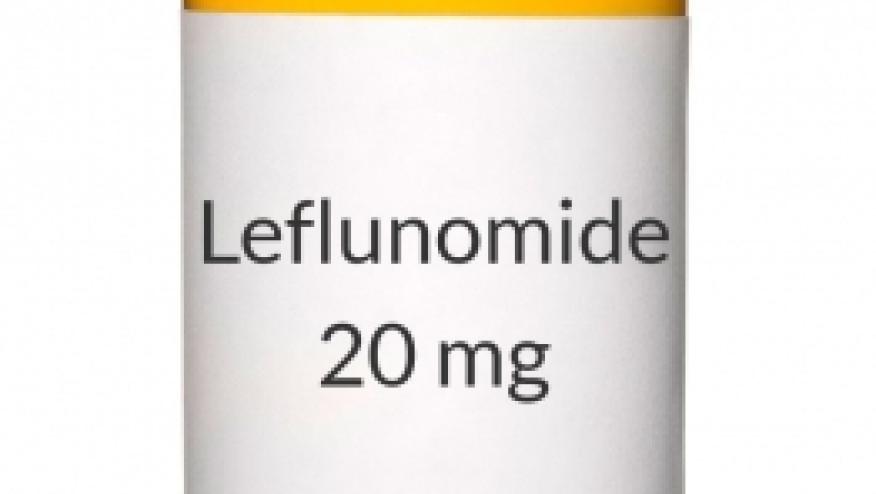ICYMI: 9 Facts about Leflunomide Save

Editor's note: This article originally appeared March 12, 2024, and is being shared again while RheumNow enjoys the July 4th holiday. Enjoy!
Medscape has published an informative review of leflunomide, drawn from Dr. Eric Ruderman’s recent lecture on the subject at the February RWCS meeting in Maui.
Leflunomide was FDA approved in 1998 for rheumatoid arthritis, roughly around the same time infliximab and etanercept were approved. While much excitement ensued for the TNF inhibitors, leflunomide has received "middle child [status] was underloved, underappreciated, and largely dismissed," said Dr. Eric M. Ruderman from Northwestern University.
Some highpoints from this Medscape article and lecture:
- Leflunomide won't replace biologics, "…but it should be in your toolkit"
- Leflunomide is highly effective in combination with methotrexate
- Leflunomide is as effective as methotrexate in ACR20 responses
- Side effects include diarrhea, nausea, rash, alopecia (reversible), and elevated liver function tests
- One of leflunomides clear benefits is in cost; very important in many countries
- It's important to monitor the WBC and LFTs (it has a very long half-life - plasma half-life is 15.5 days)
- Leflunomide is teratogenic
- Despite the package insert, the 100 mg for 3 days loading dose is no longer used
- Leflunomide has been effective in active PsA and cutaneous psoriasis
Join The Discussion
I did not see Eric's talk, but the teratogenicity of leflunomide is questioned in human case series. It is based upon animal models:
Here is one series https://pubmed.ncbi.nlm.nih.gov/29222350/
Here is the Mother To Baby pdf: https://mothertobaby.org/fact-sheets/leflunomide-pregnancy/
Nonetheless, if I had a patient on leflunomide who got pregnant, I would stop it and do a washout, but I am no longer as adamant with strict contraception on leflunomide as I was back in the days before these large case series became apparent.
DT-- you are correct. While LEF is officially a teratogen (mainly on animal data) and is contraindicated in pregnancy/conception and use to be labeled as a category "X" risk before they changed to to the new PLLR safety warnings for pregnancy. But your point is that there are several cohort reports of >100 pregnant patients (usually RA) who took LEF at conception or early in pregnancy with near normal outcomes and no/few malformations. My study of LEF and pregnancy leaves me to believe that I avoid LEF in women who wish to become pregnancy; but if by chance a patient on LEF becomes pregnant, the actual risk of fetal malformation are very low and way lower than mycophenolate. Mycophenolate is the most teratogenic drug we rheumatologists use in practice (admitting we hardly every use CTX anymore)
I fully agree with Dr Ruderman. The combination of MTX and Lef was often very effective. No LFT changes. Some pregnant women stayed on the regimen with no problems. Some diarrhea but most people put up with it and some were happy about it. Keep it in mind.
I would ask you reconsider your comment of no problems with leflunomide and pregnancy. you are correct. LEF is officially a teratogen (mainly on animal data) and is contraindicated in pregnancy/conception and use to be labeled as a category "X" risk before they changed to to the new PLLR safety warnings for pregnancy. But your point is that there are several cohort reports of >100 pregnant patients (usually RA) who took LEF at conception or early in pregnancy with near normal outcomes and no/few malformations. My study of LEF and pregnancy leaves me to believe that I avoid LEF in women who wish to become pregnancy; but if by chance a patient on LEF becomes pregnant, the actual risk of fetal malformation are very low and way lower than mycophenolate. Mycophenolate is the most teratogenic drug we rheumatologists use in practice (admitting we hardly every use CTX anymore)
Some of my patients who developed diarrhea, were lactose intolerant. Most of them improved with lactase supplementation before taking leflunomide.
Este estudio del 2018 en 51 mujeres embrazadas que recibieron Leflunomida no encontro mas alteraciones .
.Abril 2018;77(4):500-509. doi: 10.1136/annrheumdis-2017-212078. Epub 8 de diciembre de 2017.
En una cohorte de 289 688 embarazos en Montreal, de 1998 a 2015, se estudió la exposición a leflunomida en el primer trimestre para determinar su asociación con la MCM y los abortos espontáneos. También se examinaron las exposiciones a leflunomida en el segundo o tercer trimestre para determinar su asociación con la prematuridad y el bajo peso al nacer. 51 embarazos estuvieron expuestos a leflunomida durante el primer trimestre y 21 durante el segundo/tercer trimestre. Ajustando por posibles factores de confusión, el uso de leflunomida durante el primer trimestre del embarazo no se asoció con el riesgo de MCM (OR ajustado [aOR] 0,97, IC del 95%: 0,81 a 1,16; 5 casos expuestos). No se encontró asociación entre la exposición a leflunomida en el segundo/tercer trimestre y el riesgo de prematuridad (aOR 4,03, IC del 95%: 0,91 a 17,85; 7 casos expuestos) ni con bajo peso al nacer (aOR 1,06, IC del 95%: 0,90 a 1,25; 8 casos expuestos).
Sorry, but this is not a comment. Please dont post pub med abstracts in the "Comments" section of an article. Comments are for discussion.










If you are a health practitioner, you may Login/Register to comment.
Due to the nature of these comment forums, only health practitioners are allowed to comment at this time.